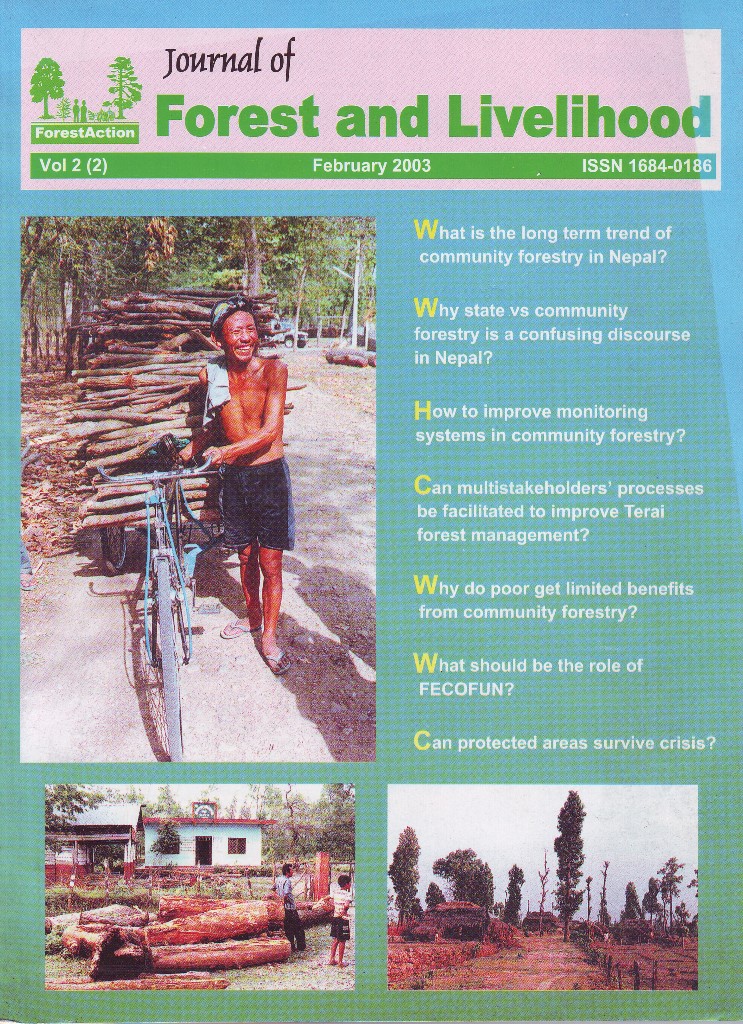Exclusion Isn’t Easy: Lessons from a Leasehold Forest
DOI:
https://doi.org/10.3126/jfl.v2i2.59724Keywords:
leasehold forestry, exclusion, collective action, poverty alleviation, devolutionAbstract
Nepal’s Hills Leasehold Forestry and Forage Development Project leases forestland to small, organized groups of rural households. Effective community management of forestland requires the capacity to exclude other potential resource claimants. Through institutional analysis of a single leasehold forest case study, we argue that exclusion by small groups is difficult, especially for the poorest of the poor. We recommend ensuring adequate provisions for meeting the forest product needs of the poorest within the context of community forestry as a more effective poverty alleviation and conservation strategy. In addition to community forestry-based forest access, poor farmers need a leasehold program for farmland that would enable food self-sufficiency.
Downloads
Downloads
Published
How to Cite
Issue
Section
License

This work is licensed under a Creative Commons Attribution-NonCommercial 4.0 International License.
CC-BY-NC: This license allows reusers to distribute, remix, adapt, and build upon the material in any medium or format for noncommercial purposes only, and only so long as attribution is given to the creator.





